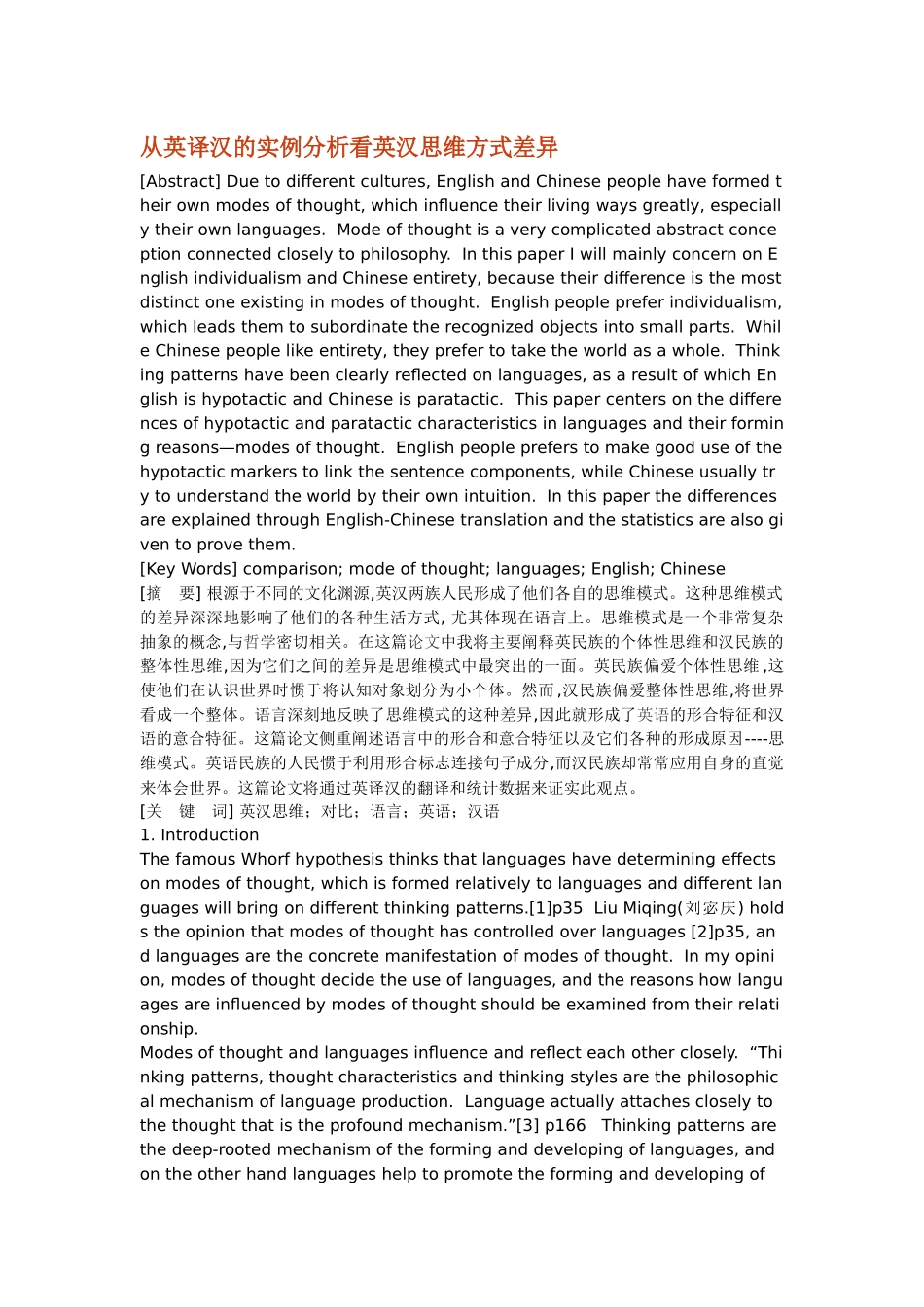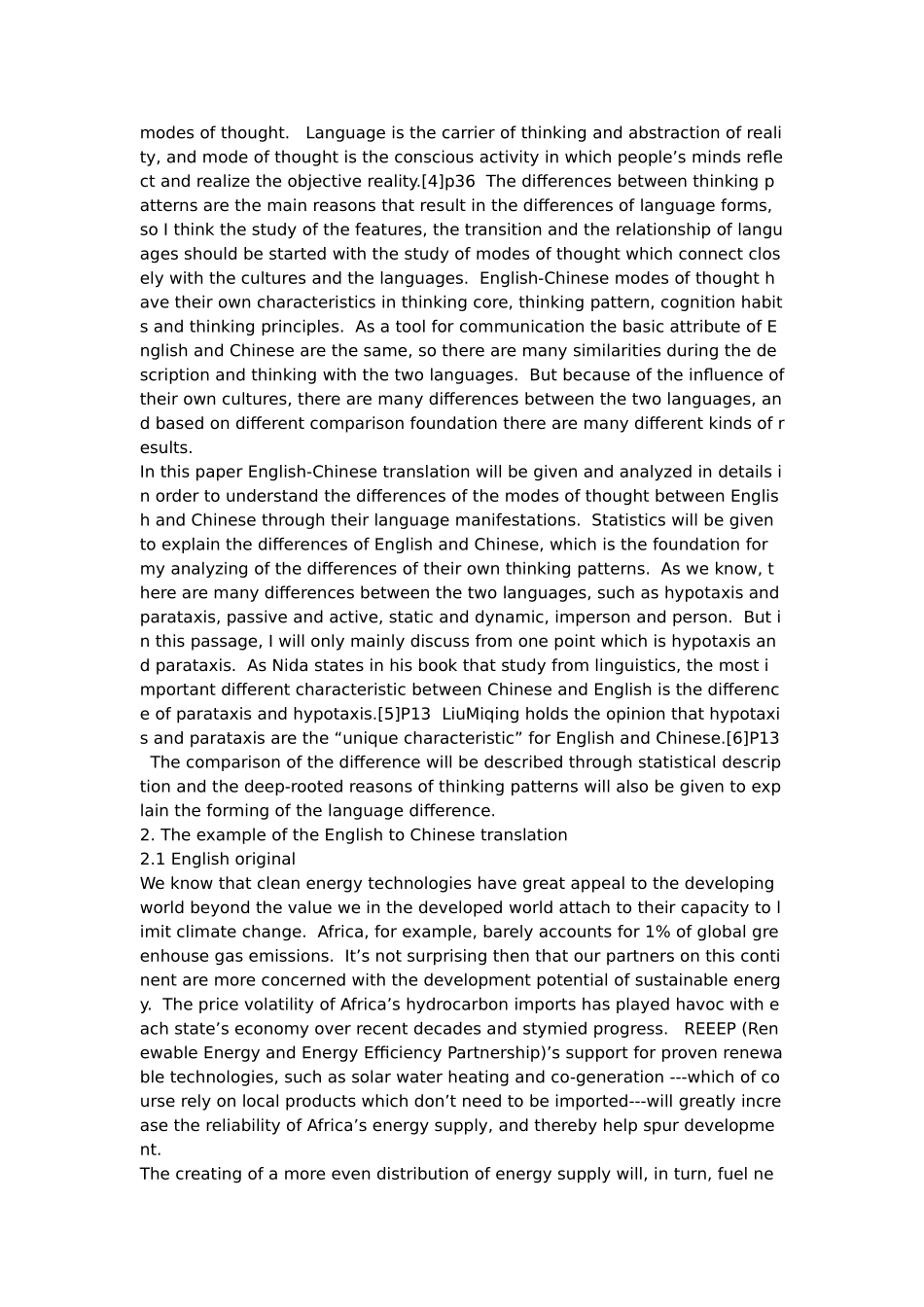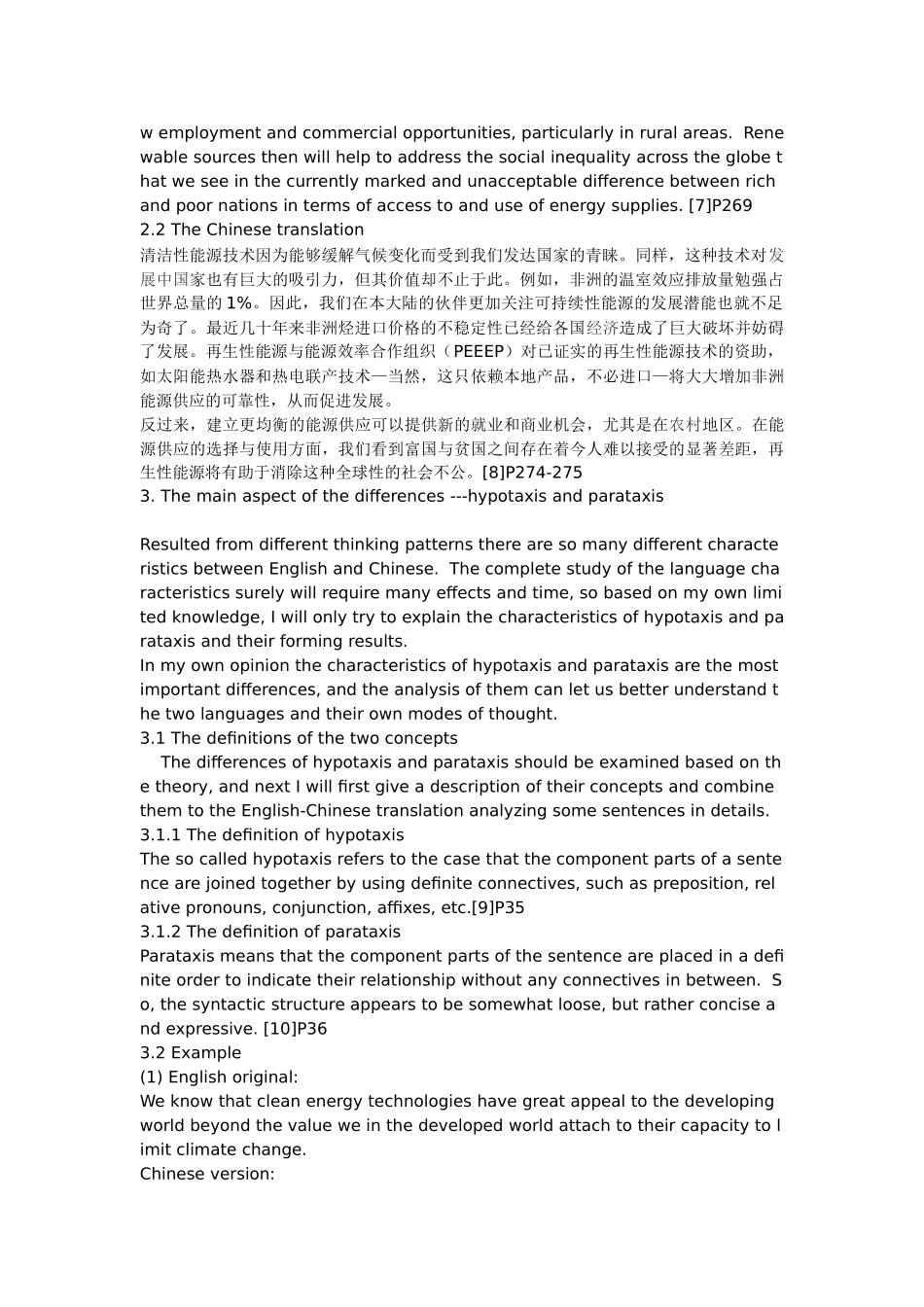从英译汉的实例分析看英汉思维方式差异[Abstract] Due to different cultures, English and Chinese people have formed their own modes of thought, which influence their living ways greatly, especially their own languages. Mode of thought is a very complicated abstract conception connected closely to philosophy. In this paper I will mainly concern on English individualism and Chinese entirety, because their difference is the most distinct one existing in modes of thought. English people prefer individualism, which leads them to subordinate the recognized objects into small parts. While Chinese people like entirety, they prefer to take the world as a whole. Thinking patterns have been clearly reflected on languages, as a result of which English is hypotactic and Chinese is paratactic. This paper centers on the differences of hypotactic and paratactic characteristics in languages and their forming reasons—modes of thought. English people prefers to make good use of the hypotactic markers to link the sentence components, while Chinese usually try to understand the world by their own intuition. In this paper the differences are explained through English-Chinese translation and the statistics are also given to prove them. [Key Words] comparison; mode of thought; languages; English; Chinese [摘 要] 根源于不同的文化渊源,英汉两族人民形成了他们各自的思维模式。这种思维模式的差异深深地影响了他们的各种生活方式, 尤其体现在语言上。思维模式是一个非常复杂抽象的概念,与哲学密切相关。在这篇论文中我将主要阐释英民族的个体性思维和汉民族的整体性思维,因为它们之间的差异是思维模式中最突出的一面。英民族偏爱个体性思维 ,这使他们在认识世界时惯于将认知对象划分为小个体。然而 ,汉民族偏爱整体性思维,将世界看成一个整体。语言深刻地反映了思维模式的这种差异,因此就形成了英语的形合特征和汉语的意合特征。这篇论文侧重阐述...












